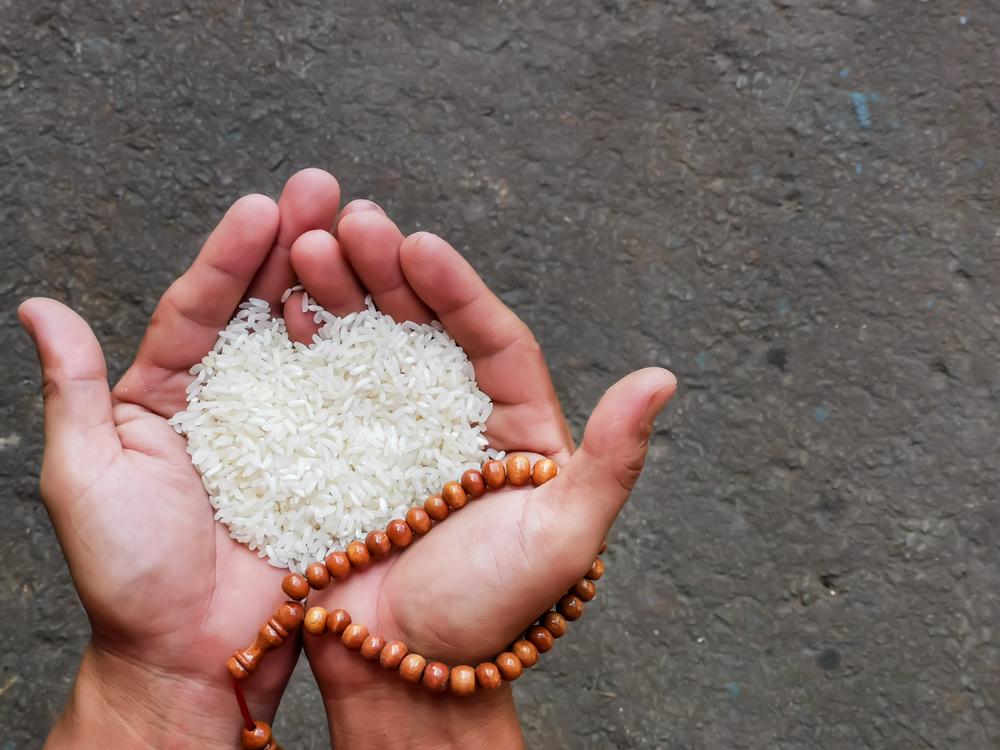
On an annual basis, Muslims are required to make an obligatory charitable donation, otherwise known as Zakat. In Arabic, “zakat” means “to purify”; as a result, the payment of Zakat results in the purification of wealth. Although it’s often regarded as a charitable act, Zakat is by no means optional. Instead, the religious ritual makes it compulsory for Muslims to perform Zakat correctly. The amount of Zakat that one must pay is determined by their individual wealth, and this money can only go to a very specific set of people.
Before we can delve into who is eligible to receive Zakat, we must first determine exactly what Zakat is. What is commonly referred to as Zakat is actually “Zakat ul-Mal”. This is the annual tax that Muslims pay on their wealth (including money, property, silver, gold, and other net assets). Every eligible Muslim owes 2.5% of the net wealth held by them for a year, and they’re only required to make this payment once they exceed the Nisab threshold for a full lunar year. This is the minimum amount that one must have before they’re obligated to make yearly Zakat payments.
Zakat ul-Fitr differs slightly from Zakat. Although Zakat ul-Fitr is still an obligatory charitable donation, it’s required by all Muslims at the end of Ramadan. This is otherwise known as “the Charity of Breaking the Fast” and is expected of all Muslims with food in excess of their needs. The Zakat ul-Fitr amount should cover the cost of one meal, as it’s intended to feed someone in need during Eid.
There are eight kinds of people that may receive Zakat payments. These include the following:
There is some difference in opinion about who may receive Zakat ul-Fitr. Some scholars say that anyone who is eligible to receive Zakat is also eligible to receive Zakat ul-Fitr. On the other hand, some scholars say that Zakat ul-Fitr may only be received by the poor and needy alone. At UKIM, we distribute your Zakat ul-Fitr payments among individuals who struggle daily to feed themselves and their families.
Of course, if someone doesn’t fall under one of the eight Zakat categories, they’re not eligible to receive Zakat. Despite this, there are more rules about who may or may not receive Zakat. For instance, Muslims aren’t permitted to pay Zakat to their immediate families. This includes their children, parents, and grandparents, as everyone has a duty of care towards these individuals to provide for them.
To that avail, a husband isn’t permitted to pay Zakat to his wife, but a wife may do so for her husband if he falls under one or more of the eight Zakat categories. This is because it’s a husband’s duty to provide for his wife, not vice versa.
Moreover, Zakat payments may not go towards the building of mosques.
While the number one criterion for paying Zakat is exceeding the Nisab threshold for a full lunar year, there are many other categories that one must fall under to pay Zakat. These criteria include the following:
As previously mentioned, the Nisab threshold is the level of wealth that one must have to be eligible to pay Zakat. This threshold is put in place to ensure that no one gives more than they can afford and is based on the prices of silver and gold. Currently, the Nisab threshold is:
612.36g of silver at current market value
87.48g of gold at current market value
Since the prices of metals change so rapidly, though, this amount may vary.
The consensus of the majority of Muslim scholars is that no, you cannot give Zakat to a non-Muslim. Zakat is a mandatory form of charity that is intended to share wealth among Muslims, so wealthy Muslims give Zakat to poor Muslims. So long as there is wealth inequality and poverty among Muslims, Zakat must be exclusively given within the Muslim faith.
Yes, you can give all of your required Zakat to one person who is eligible to receive it. However, you should not give so much to one person that they become wealthy by receiving all your Zakat.
Once one has exceeded the Nisab threshold for the entire lunar year, they can pay their Zakat at any time they see fit. It’s permitted to pay Zakat in one lump sum or in instalments, so long as it goes to the right place. While there are no set rules about the time of year in which one should pay Zakat, many choose to do so during Ramadan. This is because spiritual rewards are multiplied during this time.
Here at UKIM, we not only receive your Zakat payments, but we provide an online Zakat calculator so you can ensure you’re donating the correct amount.
We look forward to receiving your Zakat payment and distributing it among those who need it most.
Copyright © 2025 UKIM All Rights Reserved.
UK Registered Charity Since 1962
Charity Registration No. 250275


